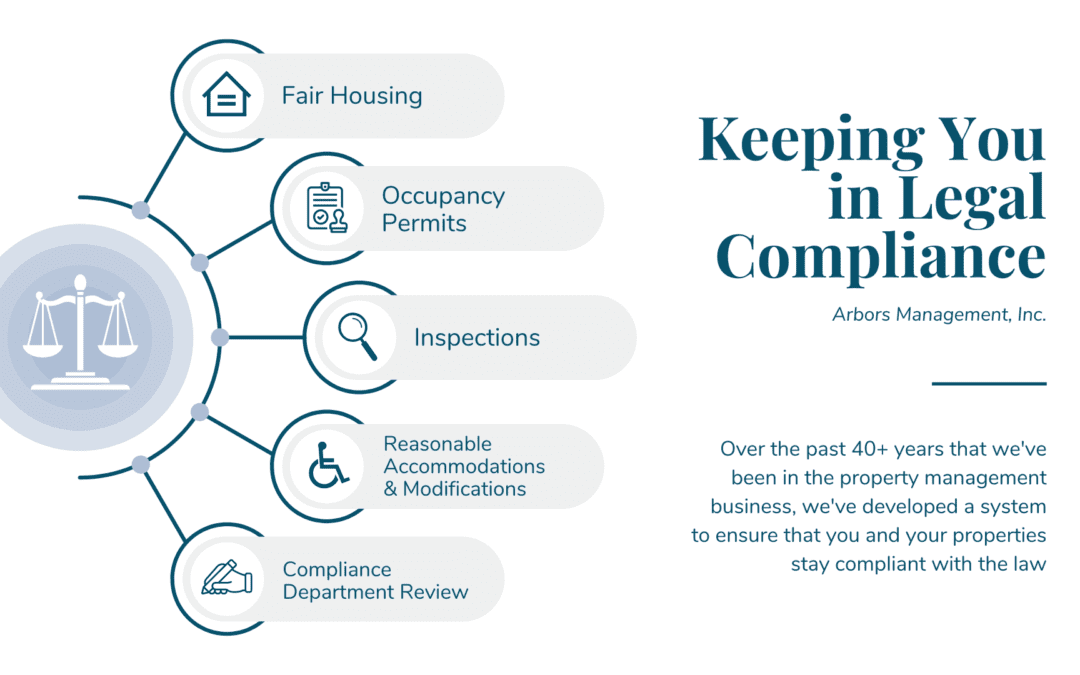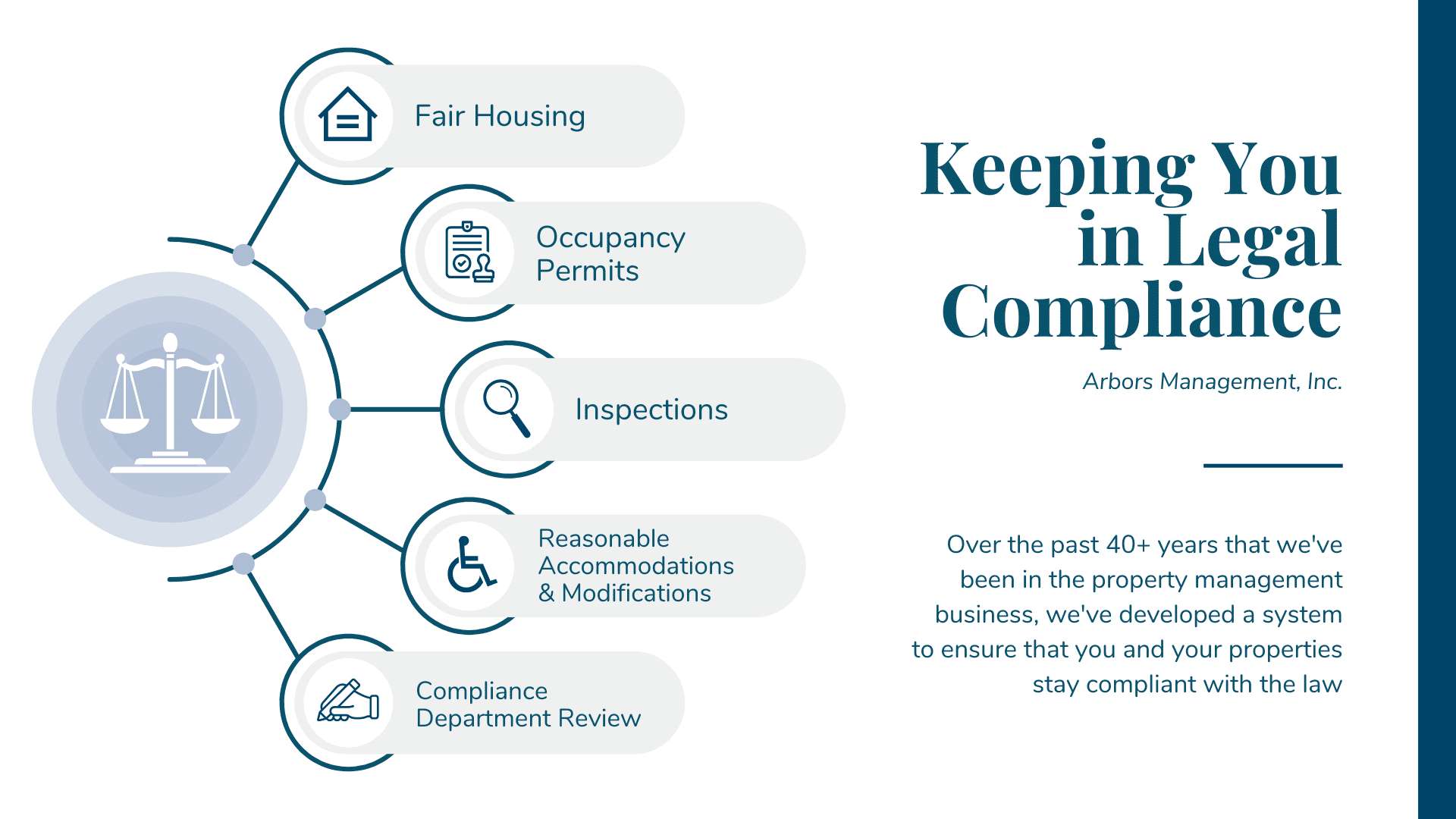
by Nicole Scimio | Sep 26, 2024 | Blog, Investment Rental Property, Owner Resources, Property Management Education, Uncategorized
Selling Your Rental Property with Residents in Place
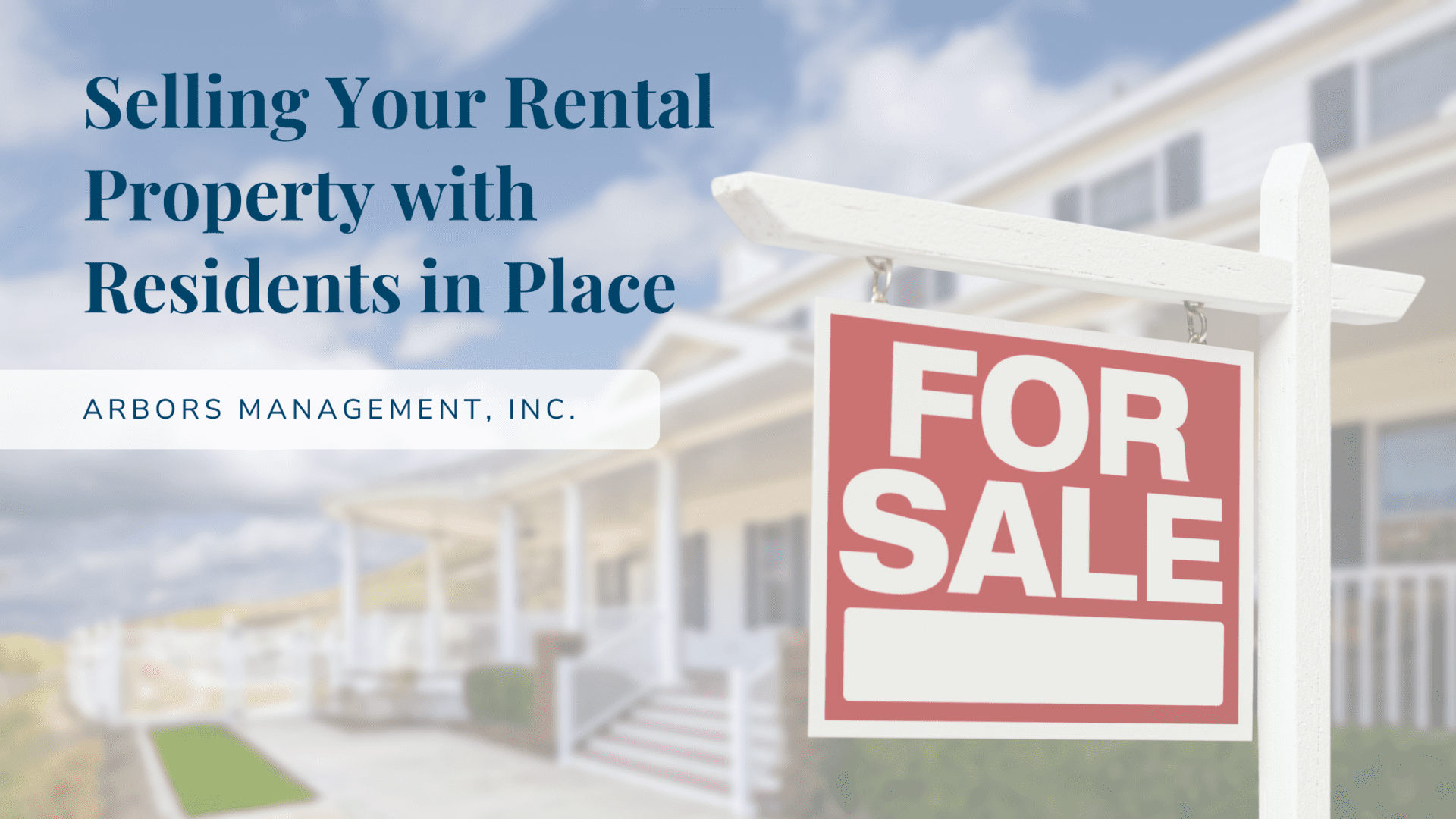
Do I Want to Sell My Rental Property?
If you own an investment property, it’s probably safe to say that at one point or another, you may have considered selling it, depending on how the market is fluctuating.
When considering whether or not to sell your investment property, one of the questions that will inevitably come up is, “Should I sell with or without my residents in place? And what happens to them when I do sell?”
This article will serve as a guide to help answer those questions and help you make an informed decision.
Selling a Single-Family Home with Residents in Place vs. Not in Place
If you own a single-family home and it’s being rented with residents in place, the value of the property is going to be dependent on the rental amount if you’re selling it to another investor.
With that being said, the value of the property for an owner-occupant (someone who will both own and occupy the home) would be more along the lines of what the market will determine.
If the property is located in an attractive market with high home values, you may be better off waiting until the property is vacant and selling it to someone who intends to move into the property and live there, as it may be more valuable to them in that scenario.
If the property is in a less desirable location with low home values, the rental amount might provide a higher value to an investor than it would someone looking to live in the property.
In this case, it may be beneficial for you to keep the resident in place because it would be as if you’re buying an income stream/cash flow.
Selling a MultiFamily Home with Residents in Place vs. Not in Place
For multifamily properties, their value is often evaluated based on the rental income they can produce.
So the higher the rents the property can generate, the higher the value of the property.
So in this scenario, it’s beneficial for the seller to increase rents as much as possible in their market, and have a fully occupied property when selling because that will give them the highest value for the property.
If your rents are significantly below market rate rents, it may be beneficial to terminate leases or transition them to month to month leases because the new owner will see that as an opportunity to increase the rents, or lease the units at the higher market-rate value.
Advantages & Disadvantages of Selling an Investment Property with Residents in Place – Single-Family Properties vs. MultiFamily Properties
Selling Your Rental Property with Residents in Place
|
| Single-Family Properties |
MultiFamily Properties |
| Advantages |
Disadvantages |
Advantages |
Disadvantages |
| – If the property is in a majority rental neighborhood, and the price point of the property allows the investor to purchase the property and cash flow with the current rental income, then the property will be attractive to an investor interested in single family home rentals
– If the lease is within 60 days of expiring and the tenants are moving out, then it could allow for a sale to a new owner occupant reducing your vacancy period
– Continue to collect rent & cash flow until the property is sold |
– Scheduling showings, inspections, appraisals, etc. with the tenant can be difficult and could lead to delays in ability to sell or close on the property
– Potential for poor showing conditions (dirty, unkept, messy, loud, etc.)
– Multiple showings will disrupt tenants’ lives, potentially causing them to want to leave
– Most single family homes sell at their best price to owner occupants, not investors |
– High rental income can make the property worth more
– Attractive to an investor looking for a “turnkey” investment property
– Continue to collect rent & cash flow until the property is sold
– A fully occupied multi-unit proves the marketability/rentability of the property to the new owner |
– Lower than market rents could cause the property to be undervalued
– Scheduling showings, inspections, appraisals, with the tenant can be difficult and could lead to delays in ability to sell or close on the property
– Cannot sell to a buyer who wants to live in one of the units
– If tenants are not paying their rent, it could be difficult to attract a buyer |
What Happens to the Current Lease – Do I Have to Kick My Resident Out?
This may vary from state to state and you’ll want to check the lease terms. However, here in Pennsylvania, the leases will transfer to the new owner in the event of a sale.
This means that you do not need to terminate the lease or evict the resident in order to sell your property.
Just keep in mind the best case scenarios that we outlined above on your particular situation to determine if it’s best for you to keep the resident in place or not.
The Challenges of Selling a Property with a Resident in Place
But as with all things, there will definitely be a few challenges in the process.
Some things that could be difficult if you sell your property with a resident in place are:
- You’re going to have to provide notice to the resident for any showings
- You’ll have to show the property with all of the resident’s personal belongings in place
- You’ll need to provide copies of the lease and payment history to the new owner
- Uncertainty around resident’s future
- If the resident has pets, it could cause accessibility concerns
- The resident might not like having their personal space entered during the sales process
- Showings, inspections, appraisals, etc.
All in All
If you decide that you want to sell your investment property with a resident currently in it, we hope this article gives you some of the advantages and disadvantages of doing so.
But ultimately, you have to make the right decision for you.
If you need any guidance in making this decision, we are here to help!
In order to best serve our clients, Arbors management, Inc. has created a sales division, Arbors Real Estate. If you are interested in selling your rental property with a resident in it, this is something that we specialize in and are well versed in the challenges that come along with doing so. We would be happy to discuss the details of your property with you. Please don’t hesitate to give us a call!

by Nicole Scimio | Nov 3, 2023 | Uncategorized
What to Do When an Evicted Resident Leaves Belongings Behind

Evictions: Unfortunate, But Sometimes Unavoidable
As you may know, evictions are an occasional obstacle that we deal with in property management.
Maybe you’ve dealt with an eviction before as an owner, and maybe you haven’t.
If you haven’t had any experience with evictions, check out our blog post on the timeline of an eviction.
In that post, we detail out the course of the whole eviction process.
But, whether you’ve had to evict a resident before or not, you may have asked yourself the question:
“What do I do if the resident I evicted leaves their belongings behind in my property?”
While each eviction case is unique, we’ll try to break this part of the process down into the simplest terms.
What to Do if the Evicted Resident DOES Contact You
Chances are, the evicted resident will want at least some of their belongings back.
If that’s the case, the resident has 10 days to contact you and let you know that they’d like to retrieve their belongings.
If they do contact you, you must arrange for them to have access to gather their personal property within 30 days.
Note: This 30 day period begins the day of the eviction.
Once you’ve confirmed that they’ve retrieved everything they want, you’re legally allowed to do what you see fit with the the items that they leave behind.
What to Do if the Evicted Resident Does NOT Contact You
If the evicted resident fails to contact you within the initial 10 days, they forfeit their right to retrieve their belongings.
After the 10 day period of no contact, you are allowed to do what you see fit with the items they left behind.
However, to be on the safe side, we recommend you hold onto their items for the full 30 day period.
In Simplest Terms:

Eviction occurs → Resident has 10 days to contact you
If you are contacted → Resident has 30 days to get their belongings
If you are not contacted → After 10 days, you can handle their belongings how you see fit
All in All…
While evictions are not a “fun” part of owning a rental property, they do come with the territory.
The good news is that we can help!
We’ve gained expertise in all aspects of property management, including evictions, over the past 40+ years that we’ve been in business.
Contact us today for a free consultation to discuss your unique situation!
Disclaimer: We are not attorneys, and this is not to be considered legal advice. We encourage you to contact your attorney for guidance on your particular situation. This article is meant to provide a general rule or procedure on how this process works.
This is the process as we understand it in Pennsylvania and may not pertain to other states or specific cities within Pennsylvania. We always encourage a consultation with a local attorney who knows and understands Landlord Tenant Law for specific locations.

by Nicole Scimio | Jun 21, 2023 | Blog, Project Based Section 8 Housing, Uncategorized

Stoneboro, PA – Arbors Management continues to expand their reach by adding Lakeview Manor in Stoneboro, PA to their portfolio. Effective June 1st, Arbors will become the new management agent of the 50-unit senior building near their new office in Grove City and other Arbors-managed properties, such as Evergreen Arbors in Franklin and Towne Towers in Oil City.
Lakeview Manor is an affordable independent senior living facility that offers a wonderful community of residents and has been a staple of the community for 36 years since its construction in 1987. Located near Lake Wilhelm, Goddard State Park, the Stoneboro Fairgrounds, Grove City Outlet Mall, and Conneaut Lake, residents have plenty to do just minutes from the property.
Since 1982, Arbors Management, Inc. has built a portfolio of over 4,000 residential units with a large majority in the affordable housing segment across Western PA and West Virginia, and it continues to grow each year. The team at Arbors Management is thrilled to begin building a lasting relationship with the residents of Lakeview Manor.
If you’d like to learn more about how Arbors can help you manage your property, please contact us.
Read the original article online on the Pittsburgh Business Times here.

by Arbors Management, Inc. | Feb 24, 2023 | Blog, Property Management Education

By: Nick Griffith & Nicole Fandel, Director of Conventional Housing and Marketing Specialist
Should I Allow Pets in My Pittsburgh Rental Property?
Many Pittsburgh rental property owners want to know if they should allow pets into their homes or if they should avoid them.
Whether you’re a pet lover or not, there are a lot of pros and cons to discuss when it comes to welcoming pets into your rental property.
Pro-Pets: Resident Pool and Pricing
The main benefit of allowing pets is that you’ll get a larger pool of potential residents interested in your home.
When pet owners have access to your property, you’ll get a larger selection of applicants and a bigger audience of people who want to see your property and lease it.
Today, it seems like almost everyone has a cat or a dog or a hamster that they cherish – pets are part of the family. So, it’s ultimately easier to rent out your home when you decide to allow pets.
Another pro of allowing pets in your rental property is additional revenue.
You’ll have the ability to charge pet rent in addition to the rent your resident pays. People are very attached to their animals, and they’ll be willing to pay a little more to have them in the property.
You can reap those benefits when you allow pets and charge a little more each month to cover potential additional wear and tear.
Can I Charge a Pet Deposit?
Owners will often want to know if they can charge a pet deposit in addition to the security deposit when they allow pets.
In Pennsylvania, the law says that we can only charge a security deposit that’s the equivalent of one month’s rent. So, we don’t typically charge an additional pet deposit because a deposit has to be returned to the residents.
Instead, we charge the pet rent, which generates additional income for our owners every month.
Avoiding Pets: Potential for Damage
The biggest reason that property owners prefer to avoid pets is that there’s a potential for property damage.
We’ve all heard the horror stories: pets might pee on the floors, scratch the carpet, and chew up the baseboards. They can make messes.
Yes, these things can happen; but generally, pets are often well-trained and well-behaved.
If your residents take care of their pets and the property, you won’t have any unnecessary damage.
However, there’s no guarantee. When you’re screening residents and deciding whether or not to accept a pet, you have to consider the animal’s breed, size, and weight.
Consider the applicant as well. You’ll need to determine whether that applicant is a responsible pet owner who can truly care for the animal as well as your property.
Service and Support Animals
 Another hot topic is the rise of service animals and emotional support therapy animals.
Another hot topic is the rise of service animals and emotional support therapy animals.
These are animals that are coming into the property to help the resident perform daily tasks, or help them emotionally through their daily lives.
If a resident has a service or support animal, we cannot discriminate against those animals, even if there’s a strict no-pet policy in place.
To protect your property, we will always ensure the appropriate documentation and supporting medical notes are in place to verify a service animal or an emotional support animal. We don’t want residents to try and skirt the rules, or put our owners in an unfavorable position.
In Conclusion: Pets or No Pets?
Ultimately, the decision to allow pets is up to you, the owner.
Whether you choose to allow pets or not, we have policies, procedures, and documents that ensure that we are compliant with the laws.
We’ll charge your residents an appropriate amount for the added benefit of moving in with their furry friends, and make sure your property is protected.
If you have any questions about pets, or anything at all pertaining to your Pittsburgh rental property, please contact us and we’d be more than happy to help.

by Nicole Scimio | Dec 5, 2022 | Blog, Property Management Education, Tenant Education

By: Nick Griffith & Nicole Fandel, Director of Conventional Housing and Marketing Specialist
How We Keep Our Clients in Compliance with the Law
One of the most important facets of property management is maintaining legal compliance. As daunting as that can be for one owner, Arbors has a dedicated Compliance Department to ensure that you and your property are in the clear.
So how do we keep our clients legally compliant? We’ll break that down in this article over these five different categories:
- Fair Housing
- Occupancy Permits
- Inspections
- Reasonable Accommodations and Reasonable Modifications
- Compliance Department Review
1. Fair Housing
First and foremost, we want to make sure your property is compliant with fair housing regulations, one of the most important aspects of managing rental properties. How do we keep you in compliance with fair housing law?
One of the best ways for us to do this is through our screening criteria. We’ve developed our screening criteria over the 40 years that we’ve been in business and abide by that criteria on properties that we manage in order to avoid any fair housing violations.
In an effort to eliminate unfair advantage or preference among applicants, we process applications by the standards set by the Pennsylvania State Law. We also process applications in the order that they are received.
Additionally, our agents representing you have their real estate salesperson license. With this comes continuing education to ensure we stay up to date with all legal requirements and updates pertaining to keeping you compliant with local, state, and federal laws.
2. Occupancy Permits
Another way that we keep you in compliance is by keeping your property in rental housing code compliance with any state, local, or municipality housing standards. One of the items that is included in many of these local requirements is an occupancy permit or a rental registration.
If you do have a rental property under our management, we will take care of occupancy permits or rental registrations required by any local municipality or governments. This includes:
- Payment on our clients’ behalf of rental registration fees
- Coordinating and potentially attending occupancy inspections
- Arranging any repairs needed in order to stay compliant with local municipality occupancy standards
3. Inspections
We perform annual inspections – we call them interim inspections. At these inspections, we’re looking for common things at your property that are required by the local municipalities to make sure that you’re able to obtain occupancy permits. The most common things are:
- Smoke detectors
- Carbon monoxide detectors
- Handrails
- Any other obvious safety deficiencies at the property
If we do find that any of these items need attention, we will address them.
4. Reasonable Accommodations and Modifications
Occasionally, a resident may request for a reasonable accommodation or a reasonable modification to your property.
We are trained and well-versed in the requirements necessary in order to approve or deny these requests.
We will handle the proper paperwork and forms to document the request to complete everything, all while making sure – you guessed it – that you are staying in compliance by abiding by fair housing laws when accommodating or denying a request.
Here’s the difference between the two:
Reasonable Accommodation: request for a change in our policies and procedures to accommodate a resident for a need that they have.
*Responsibility of the landlord to pay
Ex: Allowing a service animal to occupy a property with a no-pet policy
Reasonable Modification: request to change the physical nature of the property to accommodate a resident for a need that they have.
*Responsibility of the resident to pay
Ex: Installing a ramp to the front entrance of a property because the resident is wheelchair bound
5. Compliance Department Review
Any new residents moving into your property will be reviewed by our Compliance Department in order to ensure that we met all of the screening criteria appropriately.
A few items that the Compliance Department review are:
- The lease
- Application
- Credit and criminal reports
- Photo identification
- Proof of income
If they do find any errors or discrepancies, our management staff will be alerted and those will be corrected as soon as possible.
Arbors Management Keeps You Compliant
With over 40 years of experience in property management in Pittsburgh, Western Pennsylvania, and West Virginia, we’ve learned a thing or two about legal compliance.
When you hire Arbors Management to manage your property, you are also hiring a dedicated Compliance Department that ensures that you and your property are operating within the bounds of the law.
If you have any questions about our professional Pittsburgh property management services, including how our Compliance Department works, please contact us through this form, or give us a call at 1 (800) 963-1280.
Disclaimer: We are not attorneys and the information herein is not intended to be legal advice. Please consult with your attorney for any matters pertaining to your specific situation.
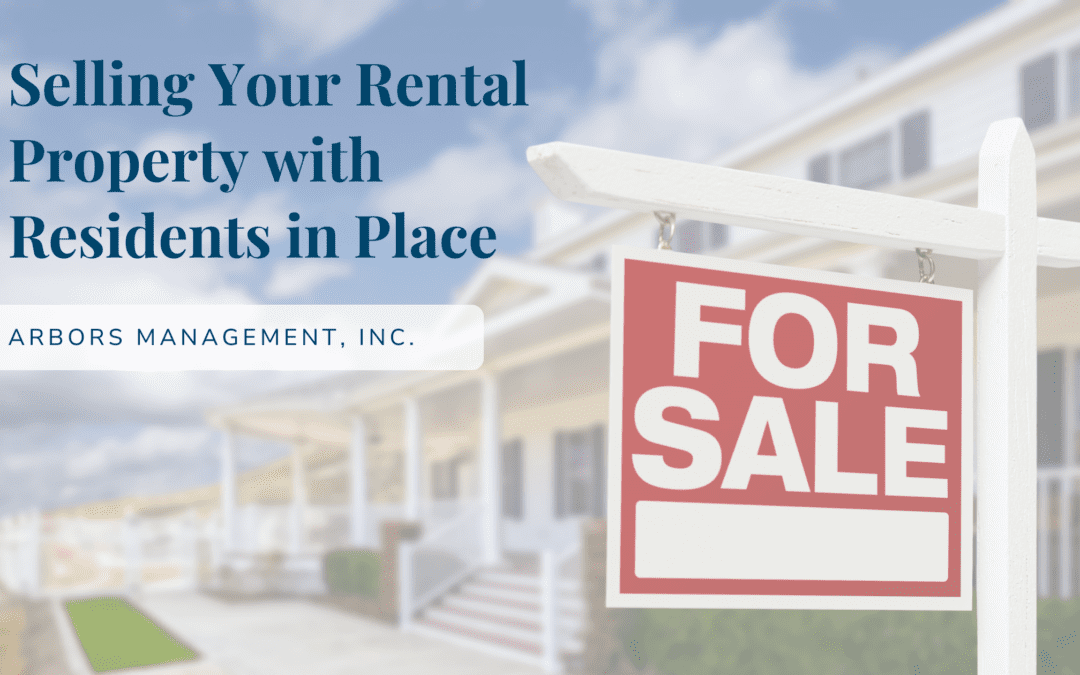


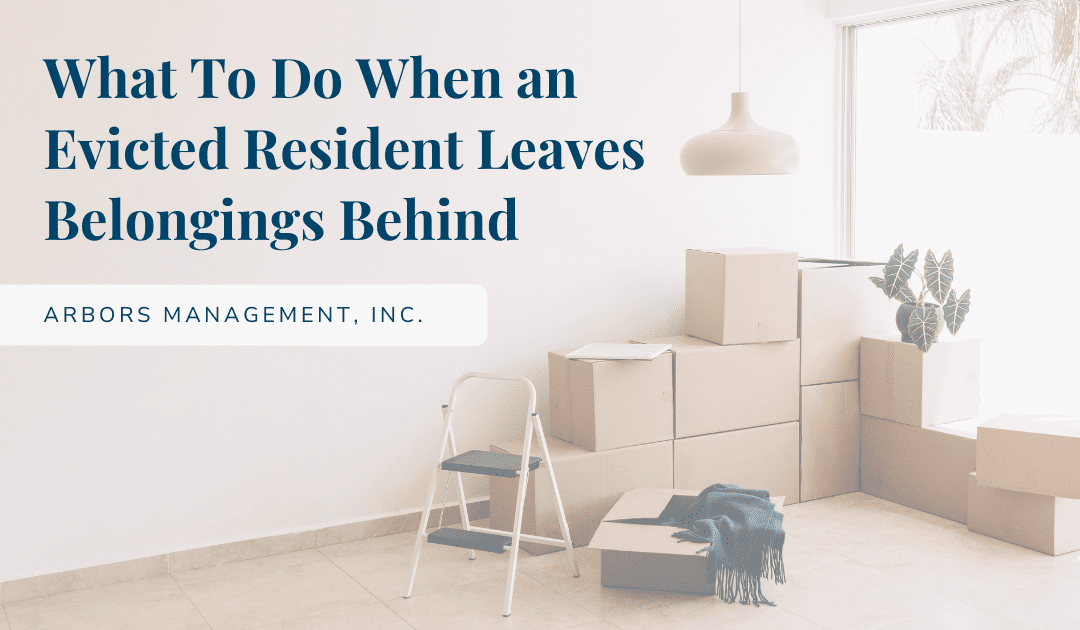
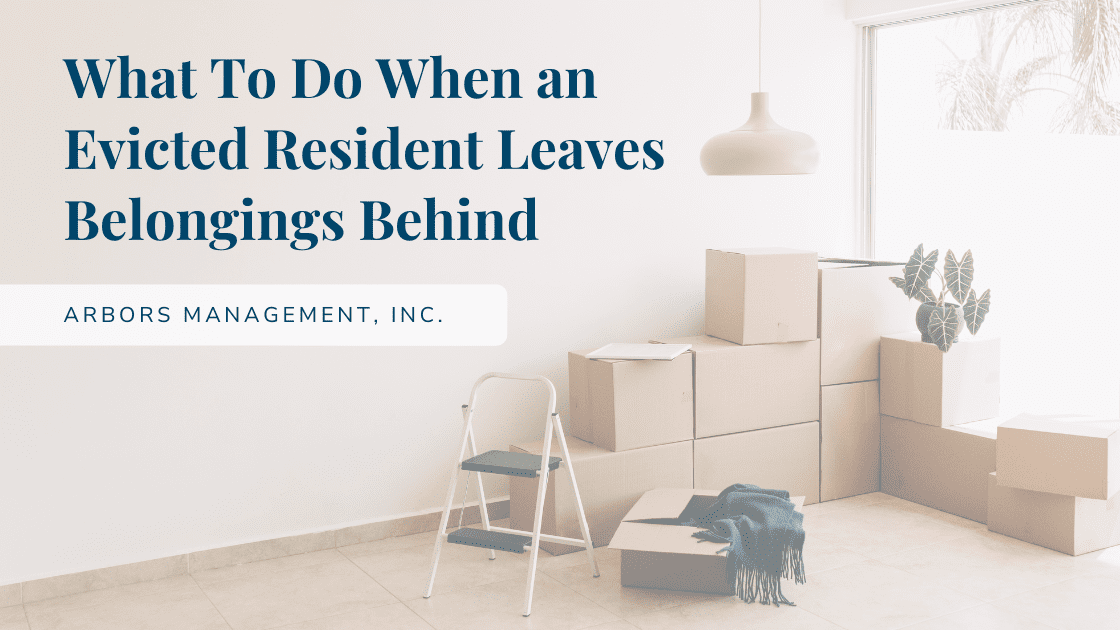
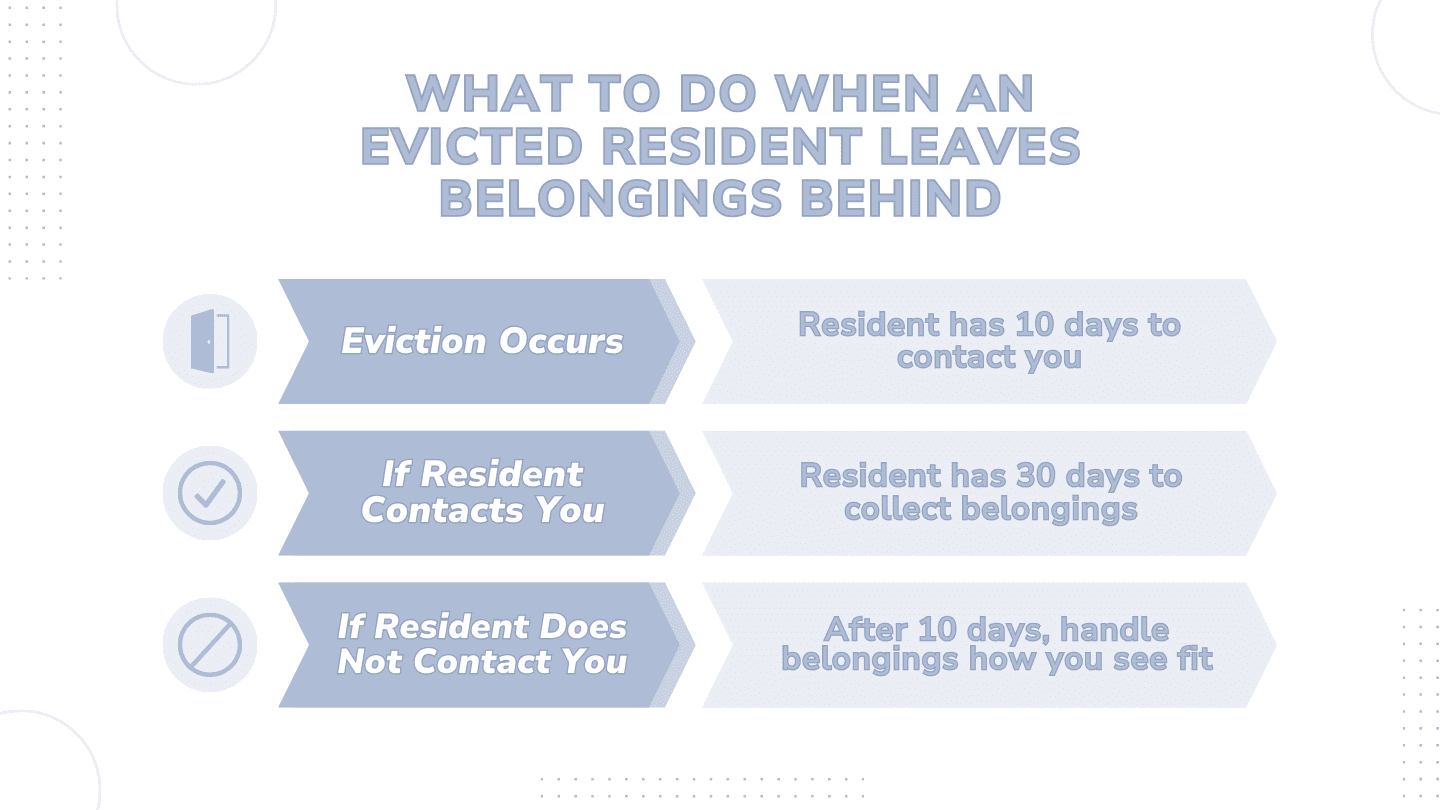
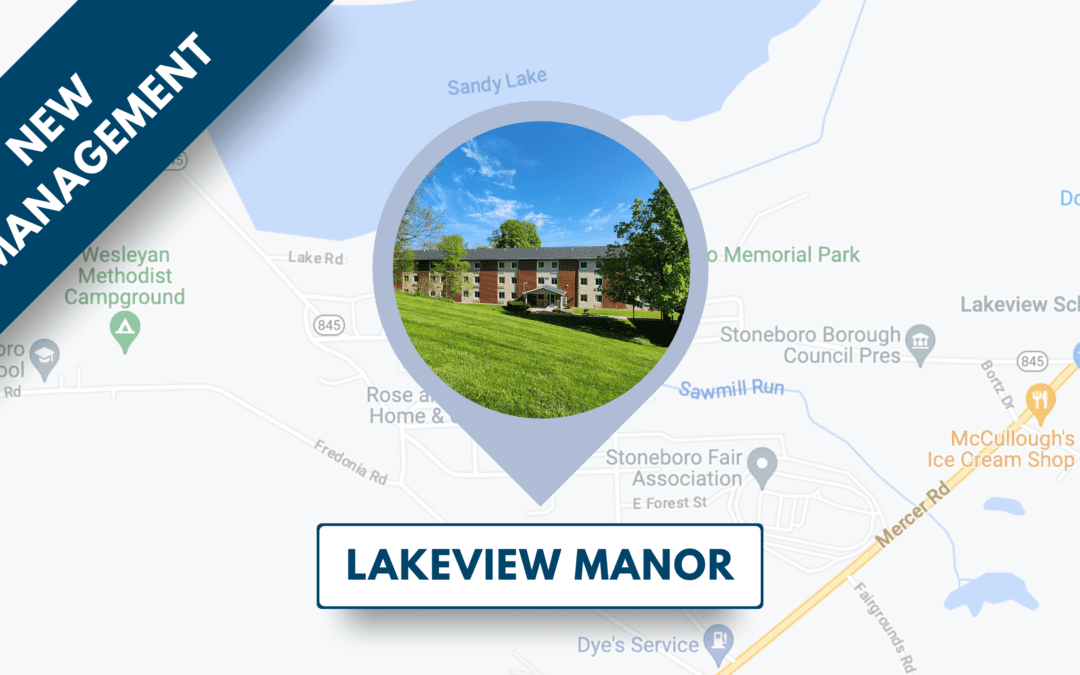
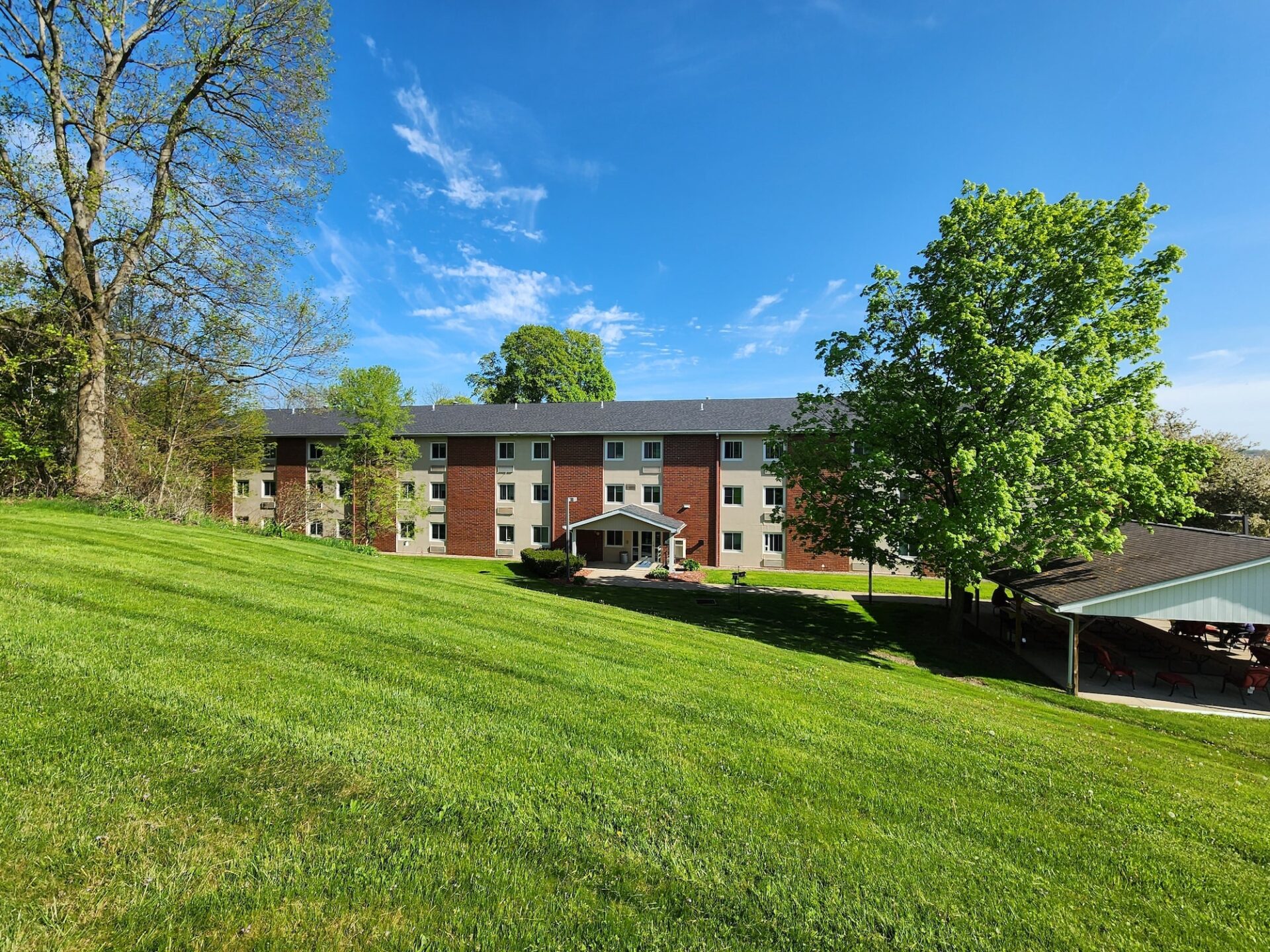


 Another hot topic is the rise of service animals and emotional support therapy animals.
Another hot topic is the rise of service animals and emotional support therapy animals.